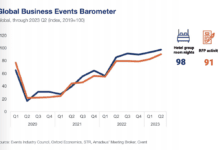 RFPs are more than a document requesting information; they are a reflection of your business case in the eyes of the respondent.
RFPs are more than a document requesting information; they are a reflection of your business case in the eyes of the respondent.
Ask yourself, who am I communicating to? In many or most cases if you are communicating with a hotel or resort, the person answering the RFP is a sales person, but there is much more going on behind the scenes that you need to be aware of when communicating your business case to obtain the best results.
Start with the End in Mind
Know your client’s goals and objectives, including the vision on the financial outcome. Know the history of the program—who the decision markers are, how the decisions are made, the decision-making time frame and the presentation format expected to review the results. Once you have this information, create a brief for the client’s review and comment to ensure comprehension. Once confirmed, build the RFP.
Every RFP Is Unique
There are many short cuts, templates and technology platforms in market today, but unfortunately, most do not have the flexibility to communicate a unique business case. In return, the suppliers are populating responses with system-driven, cut-and-paste information used to create the last 1,000-plus responses. I recommend detail-rich customized RFPs for your business case.
Know Your Audience
What language are you speaking? Is it the same language as the audience that will be reviewing your business case? You’re communicating your business case to the hotel executives behind the scenes that evaluate and decide on the best business for that hotel. These are the same executives that report to either an asset manager, hotel owner or a corporate executive that is responsible for reporting to the ownership group. Their performance is largely based on RevPAR (revenue per available room) and in some cases TRevPAR (total revenue per available room). These performance indicators are compared to past year’s history, the hotels competitive set and budgeted forecasts.
What Is Your Accuracy Rate?
There are many variables to consider when making decisions that have specific financial expectations and certain variables have significant weight to being financially compliant or not. Be sure to address all of the elements that could possibly be involved. Here are a few to consider to avoid surprises:
- State and local taxes
- VAT taxes and rebates
- Union fees/regulations
- Foreign transaction fees
- Electrical, staging and rigging fees
- Bandwidth charges
- Shipping, receiving and storage fees
- Airfare
- Meeting APPs
- Ground transportation
While it’s difficult to tell what bargaining chips you will need to sort out a contract with a venue, considering these key factors when creating your next RFP can only help lead to success down the road.
Mark Benson, CMP, is the president of Applied Meetings & Hospitality Solutions. He can be reached at [email protected].










